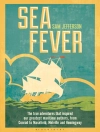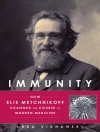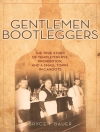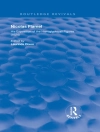In ‘Childhood, ‘ Leo Tolstoy delves into the tender, intricate landscape of early youth, vividly capturing the complexities of a young boy’s formative experiences. This semi-autobiographical work employs a reflective and lyrical prose style, rich with emotional depth and philosophical insight, characteristic of Tolstoy’s later masterpieces. Set against the backdrop of 19th-century Russia, the narrative explores the themes of innocence, moral awakening, and the stark juxtaposition of happiness and sorrow, all while embracing the intimate nuances of memory and perception. Tolstoy, born into a noble family in 1828, draws heavily upon his own childhood experiences, imbuing the text with an authentic voice and profound introspection. His early life was marked by wealth and privilege but also by a longing for deeper meaning and connection, themes that resonate throughout this work. The author’s later existential inquiries and moral philosophies are subtly hinted at, foreshadowing his transformative journey toward social justice and spiritual awakening. ‘Childhood’ serves as a poignant introduction to Tolstoy’s literary oeuvre, offering readers not only a glimpse into the mind of a budding moral philosopher but also an exploration of universal themes that transcend time. It is a recommended read for anyone seeking to understand the roots of human emotion and morality, as well as for those interested in the early influences that shaped one of literature’s greatest figures.
About the author
Leo Tolstoy, born Lev Nikolayevich Tolstoy on September 9, 1828, in Yasnaya Polyana, Russia, is one of the most esteemed writers in world literature. Coming from a well-established noble family, Tolstoy’s literary journey began early with his autobiographical trilogy, starting with ‘Childhood’ (1852), followed by ‘Boyhood’ and ‘Youth’. These works exhibit his ability to articulate the nuances of human experience with stirring emotional clarity. A master of realistic fiction, Tolstoy is renowned for his profound psychological insights and detailed depiction of Russian life. His epic novels ‘War and Peace’ (1869) and ‘Anna Karenina’ (1877) earned him acclaim for their intricate character development and grand themes of love, destiny, and history. A moral thinker, he produced numerous essays on the human condition, with ‘The Kingdom of God Is Within You’ representing his non-fiction work that resonated with his pacifist and spiritual ideals. His literary style, blending narrative with philosophical discourses, continues to influence novelists and moral thinkers to this day. Passing away on November 20, 1910, Tolstoy’s legacy remains indelible, reflecting his pursuit of truth that went beyond the written word to encompass a lifelong strive for moral progress.












